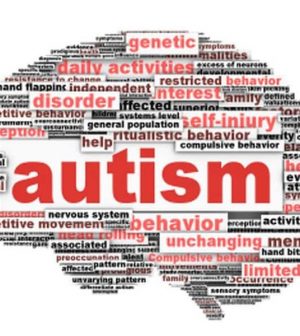- Could Your Grocery Store Meat Be Causing Recurring UTIs?
- Are You Making This Expensive Thermostat Error This Winter?
- Recognizing the Signs of Hypothyroidism
- 10 Strategies to Overcome Insomnia
- Could Artificial Sweeteners Be Aging the Brain Faster?
- Techniques for Soothing Your Nervous System
- Does the Water in Your House Smell Funny? Here’s Why
- Can a Daily Dose of Apple Cider Vinegar Actually Aid Weight Loss?
- 6 Health Beverages That Can Actually Spike Your Blood Sugar
- Treatment Options for Social Anxiety Disorder
Research Links Long-Banned Insecticide DDT to Autism

High levels of exposure to the insecticide DDT in women seems to more than double the risk of autism in their children, new research suggests.
The study looked for a link between the development of autism and two common environmental chemicals — DDT and PCBs. PCBs are chemicals that were used in many products, especially transformers and electrical equipment. In this study, they weren’t linked to autism.
Both DDT and PCBs have been banned in the United States and many other countries for more than three decades. Yet they’re still present in soil, groundwater and foods.
“They break down slowly over time. Even though they’re not produced any more in the Western world, almost everyone is exposed to some of them,” said study author Dr. Alan Brown. He’s a professor of epidemiology at Columbia University Medical Center in New York City.
“In our Finnish population-based sample of more than 1 million pregnancies, virtually all of the women had exposure to DDT and PCBs,” Brown added.
Autism is a neurodevelopmental disorder that affects social skills and nonverbal communication and also can cause repetitive behaviors. Signs include avoiding eye contact, speech delays, behaviors such as flapping or rocking, and intense reactions to stimulation such as sounds or lights.
The exact cause is unknown, but the disorder is believed to involve both genetic and environmental factors. Some studies have found links between autism and certain toxins.
Because DDT and PCBs are everywhere in the environment in both the United States and Finland, the researchers wanted to see if there was a connection between exposure to them and development of autism.
They were able to match nearly 800 cases of autism in children born from 1987 to 2005 to women in Finland who had provided blood samples. Their blood was tested for PCBs and DDE, a substance formed as DDT breaks down.
“DDE, but not PCBs were related to autism in the offspring, especially autism with intellectual disability,” Brown said.
The overall odds of autism were almost one-third higher in children born to moms with elevated DDE levels, the study found. For women with the highest DDE levels, the risk of autism with an intellectual disability was more than double.
But while the study found a link between autism and DDT exposure, it did not prove a cause-and-effect relationship.
Brown said researchers don’t know how DDT exposure might lead to autism, though they suspect the chemical may alter the function of certain genes.
He said his group would like to team up with basic science researchers to find out how the chemicals might lead to the increased risk.
Thomas Frazier, chief science officer for the advocacy group Autism Speaks, also suspects that DDT may influence gene function, but exactly how is unclear.
“We don’t have enough data to know how that might happen,” said Frazier, who wasn’t involved with the research. “This is the first study looking at DDT and autism risk in a rigorous way. This is a lead that certain types of environmental processes may interact with biology to increase the risk of autism.”
And, he said, while the increased risk wasn’t “trivial,” this study didn’t find a “massive increase” either.
Frazier noted that it was reassuring to see there wasn’t an association between PCBs and autism risk, which has been suggested in other studies. He said it’s too soon to say there’s absolutely no link, though.
“The jury is still out on PCBs and autism,” Frazier said.
The study was published in the Aug. 16 issue of the American Journal of Psychiatry.
More information
The U.S. Centers for Disease Control and Prevention’s Agency for Toxic Substances and Disease Registry has more about DDT.
Source: HealthDay
Copyright © 2026 HealthDay. All rights reserved.










